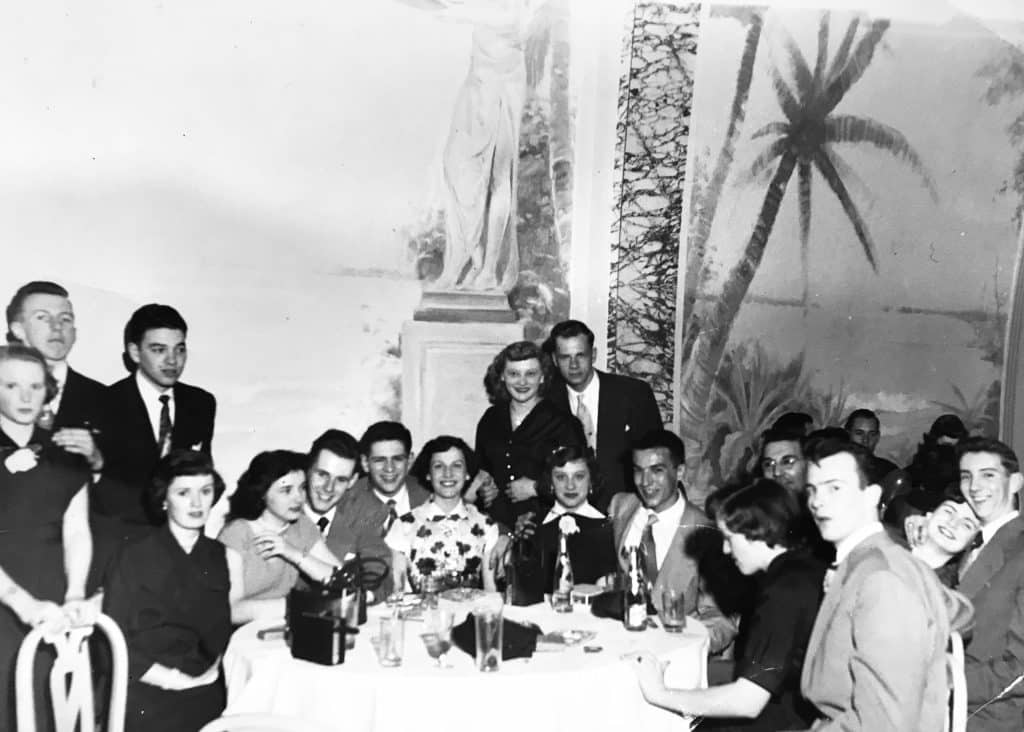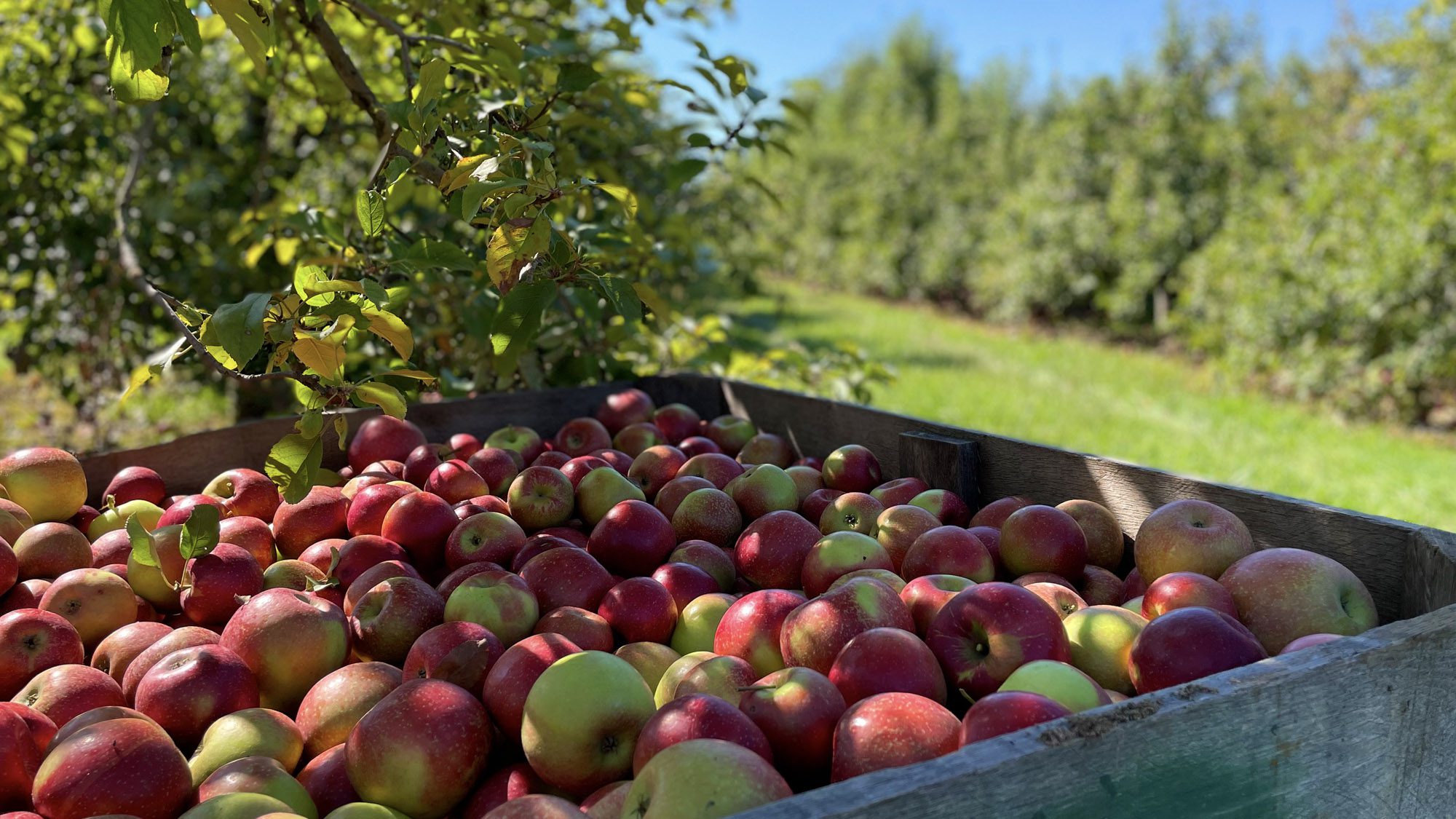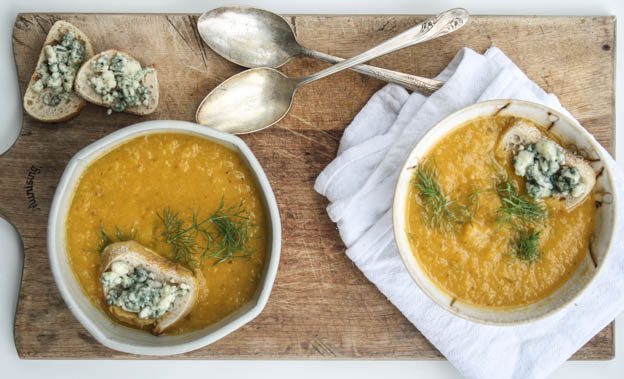If someone were to ask you to explain who you are, you’d probably start talking about the important people in your life; your family or your friends. Keep talking and you’ll likely find that food is present during the most formative moments of those relationships, binding us together. Although we don’t often acknowledge it, the food we consume goes hand-in-hand with our identities, putting new meaning to the old adage, “You are what you eat.”
Every one of us has a food story that is inextricably tied to other people. These stories are constantly growing more complex and nuanced with our daily experiences, decisions and relationships. This holiday season as I reflect on my own story, I’m reminded that I am taking part in a bigger narrative that involves thousands of Fresh Harvest families around Atlanta. As we sit down to share a holiday meal with loved ones, each of our stories are uniquely bound together by the common thread of local food. Simply put, good food creates connection. And connection always makes for a better story.
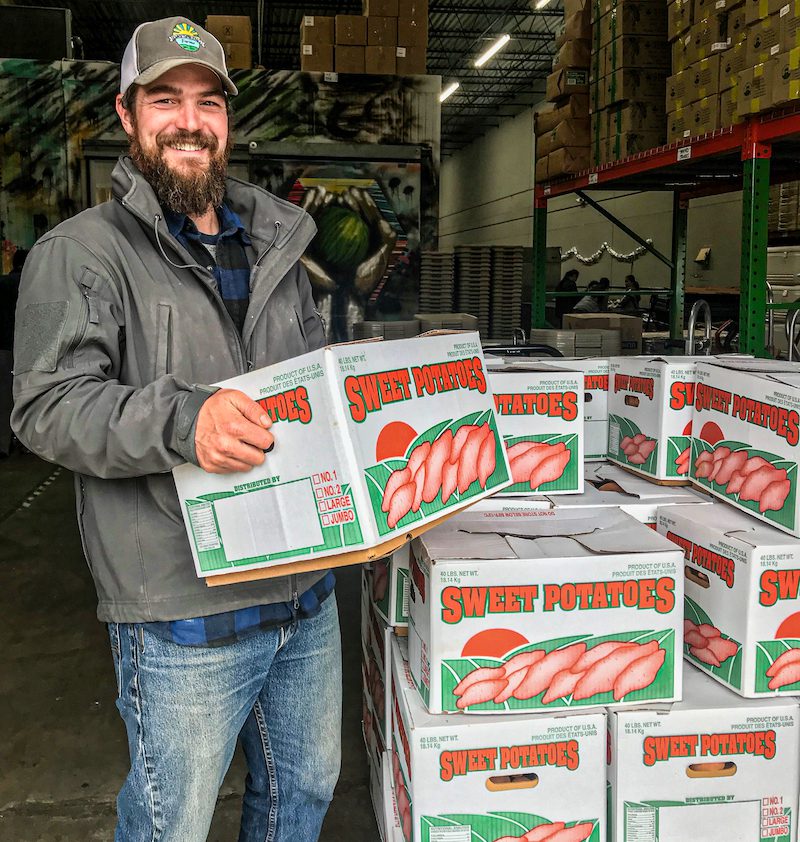
Take a sweet potato, for example. But not just any old sweet potato, this spud is local and organic, grown by Farmer Nathan on his land in Danielsville, Georgia. This week alone he delivered over 2,000 pounds to Fresh Harvest, the entire ton of which will soon be dispersed among many doorsteps around Atlanta. Some of them will be made into sweet potato pies, others will star in South Indian curry dishes, while still others will be roasted, mashed, boiled and baked in hundreds of ways that reflect the cultures, traditions and stories of that particular recipient. Something as simple as a sweet potato possesses the power to connect our various narratives, deepening our individual experience along the way. For me, the “Aha!” moment that forever melded food, connection and identity in my mind, happened 15 years ago over several large trays of hand-made lasagna.
My father is full-blooded Italian, but it was my great-grandparents who immigrated to Cleveland, Ohio during the early part of the 20th century. Memories of visits to my grandmother Adele’s house as a child are colored by the smells of sausage, slow-cooked in the most basic canned tomato sauce, pepperoni rolls in the toaster and pizzelle browning under the waffle iron. Even now, I could almost cry remembering those smells. It’s as if the food somehow connects my heart and mind to a past I never lived, to her story. As I entered adolescence, food continued to draw me even deeper into my family’s past and began to define my future.
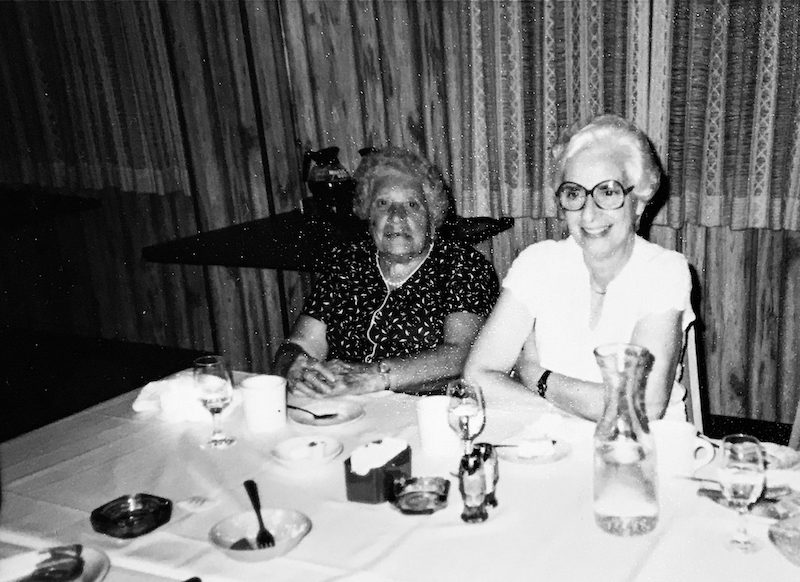
My first trip to Italy was in June, 2003. I was 15, and about to start my freshman year of high school. I was nervous. We were heading to meet my grandmother’s cousins for the first time at their home in a town called Campobasso, about an hour north of Napoli. These were the Italians who never immigrated to the United States, who, for the most part, never learned English; complete strangers discovered by my aunt during a random Facebook search. We pulled up to the apartment building and I gingerly knocked on the door.
There was a slight pause that I could have sworn lasted several hours, the door hinge creaked then all of a sudden burst open, and we were face to face with our welcome party of long lost relatives. They greeted us with excited shouts, undecipherable hand motions and awkwardly received kisses to our cheeks. Without so much as a pause, my nonna Amaleta sat us down to eat. We mistakenly thought that the first offering of lasagna was where the story ended for the evening, so to her delight, we stuffed our plates and our bellies. Then she brought out another tray. And another. The courses didn’t stop, a seemingly endless lineup of mouth-watering Italian fare, rapidly expanding in our stomachs.
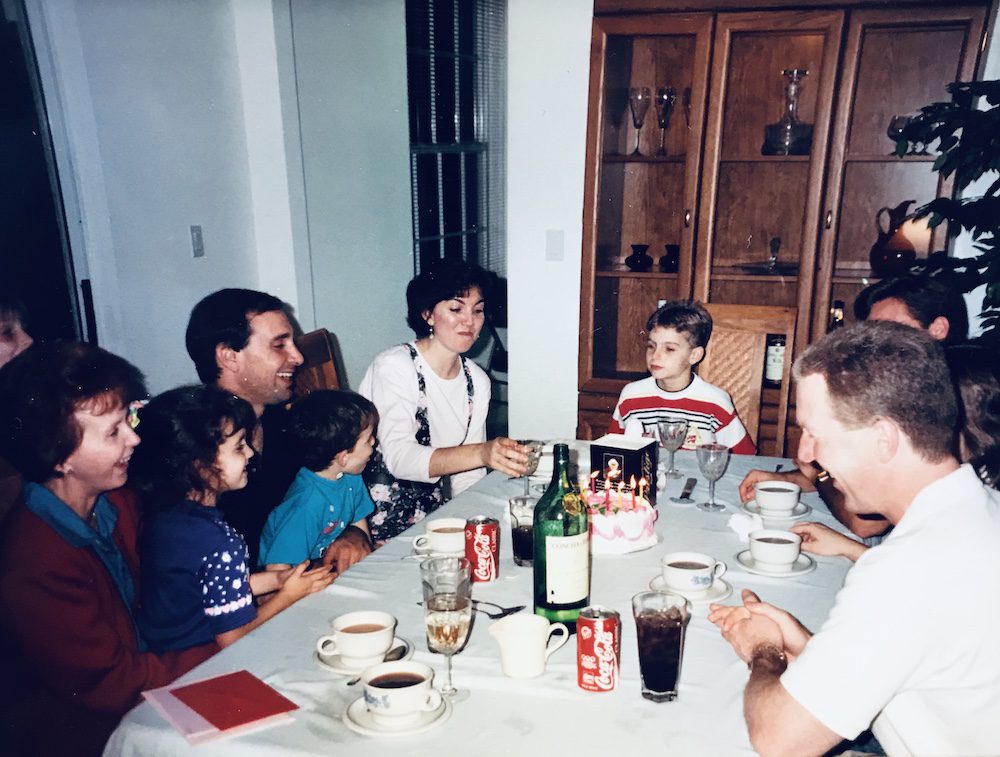
There was very little to chat about, given our handicapped ability to communicate with words. But hours flew by as we continued to gorge ourselves, sipping homemade limoncello and laughing hysterically about our many miscommunications. Hand motions replaced spoken language; it was wild fun. In the course of a few hours we became family again. And at the center of this seamless reconnection of two families from two continents speaking two languages, was a table made of wood, covered with food.
When I came to realize that food was literally at the center of so many of my most transformative moments, I began to question where it came from. If our food somehow helps inform who we are, isn’t it important to understand where it originates? Doesn’t it matter that these important moments aren’t framed by food with a source we’d rather not question for fear of uncovering a bad story? In knowing the source of our food, we not only connect with our fellow consumers, but we also allow ourselves to be enriched by the lives of our farmers and producers, giving every bite a deepened sense of complexity and meaning.
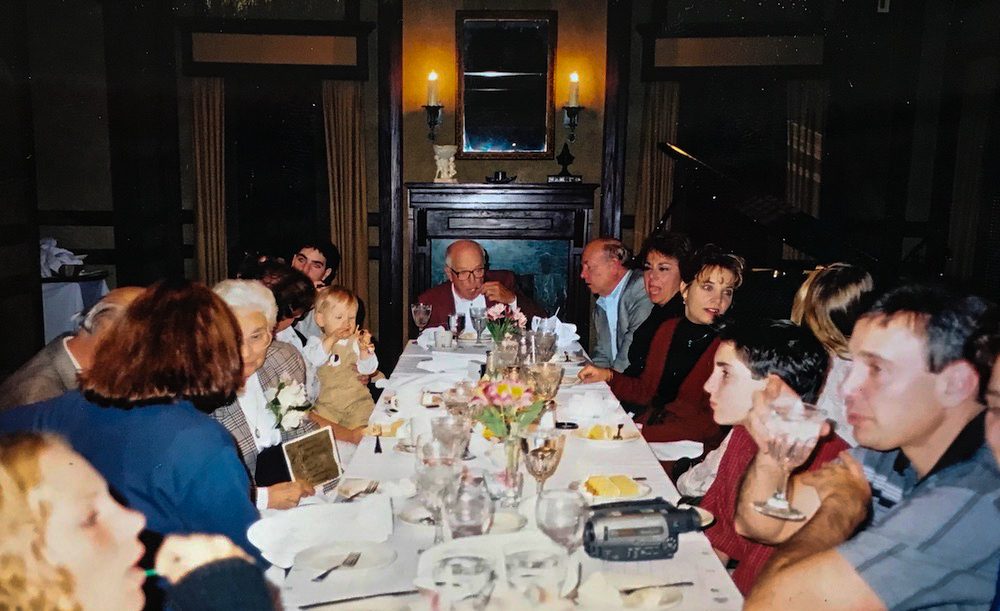
Food with a good story has the ability to become incredibly personal: a bonding agent between strangers, a connection to the past, and a bridge for cross-cultural connection. It is a catalyst for soul-level communication. It can even be argued with confidence that our food choices will impact the lives of those yet unborn. Even though she’s no longer with us, Adele Spiccia is still influencing others with her food narrative, having opened a window to the past through her grandson and many others, simply by eating and inviting others to eat.
This is only my story, but there are thousands of Fresh Harvest families with thousands of unique stories being brought together through the same local food. This holiday season as you eat with loved ones, know that your food not only builds connection with the people at your table, but also with your local producers and thousands of other Atlantans, collectively forming a better story together through food. Know that each bite has meaning, and that together we are allowing our food stories to shape and be shaped by something bigger than ourselves.
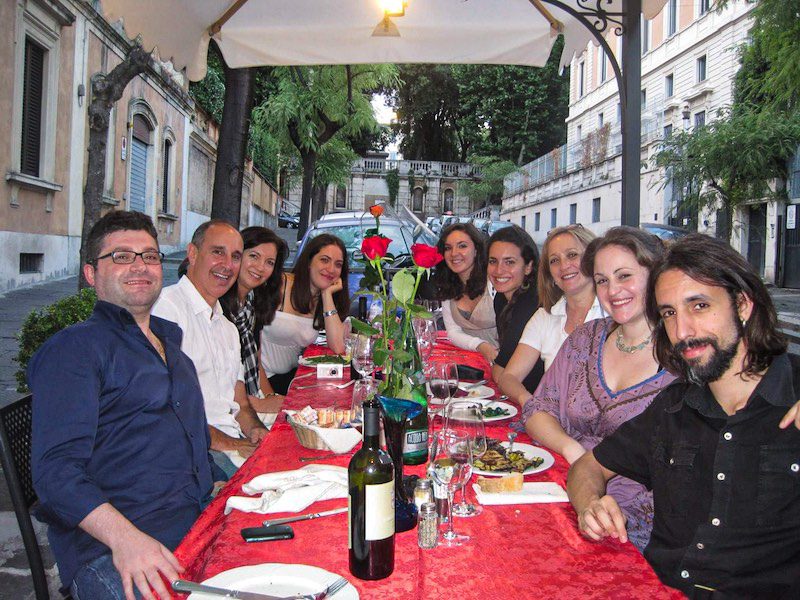
We’re excited to offer more produce and grocery items from local producers than we ever have before. Whether it’s for a holiday feast or just a casual meal with friends, make it the most meaningful by sourcing local.
